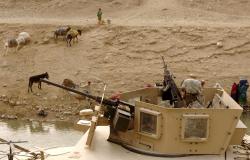
Mary Kaldor's work constitutes an exceptionally sustained, cohesive, and also broadly aimed argument for often radical – and generally cosmopolitan – changes to state's approaches to security. Informing the project's various proposals is a theoretical foundation derived from earlier work on ‘new war’. This ‘new war thesis’ holds that the nature of war has changed from involving a Clausewitzian logic of extremes to one of ‘persistence and spread’. This thesis is presented as an ideal type that should inform scholarship and policy. The essay finds fault with the way this foundation is constructed, in particular its rejection of Clausewitz. Rather than reject the new war thesis, though, the essay shows that a reconciliation between it and the Clausewitzian theory of war is not only possible, but results in more cogent arguments for the policy proposals Kaldor contends are the real test of the theoretical underpinning of her project.
Policy Implications
- Human security advocates should not justify their views on the use of military force by contending that war is fundamentally transformed. War is still a contest centrally involving the search for victory over an enemy force, even though what victory must look like and the strategies necessary to obtain it have changed.
- Civilian protection should be the primary objective for most uses of military force, not simply because of the danger that too much offensive warfighting will result in too many civilian casualties, but also because most ‘new war’ forces are so weak and disorganized that there is no immediate need to seek their physical destruction.
- Rather than a relatively selfless and risky allocation of resources, training large portions of modern military forces to be adept at human security's quasi‐policing and civilian protection imperatives is the best way for states to maintain their own power and security over the long‐term.
Image credit: The U.S. Army via Flickr (CC BY 2.0)